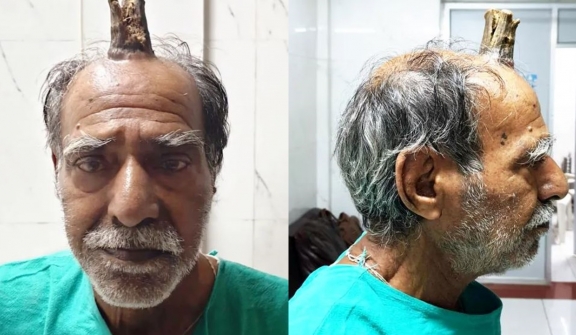
Shyam Lal Yadav, a resident of Madhya Pradesh, India, experienced a peculiar medical condition.
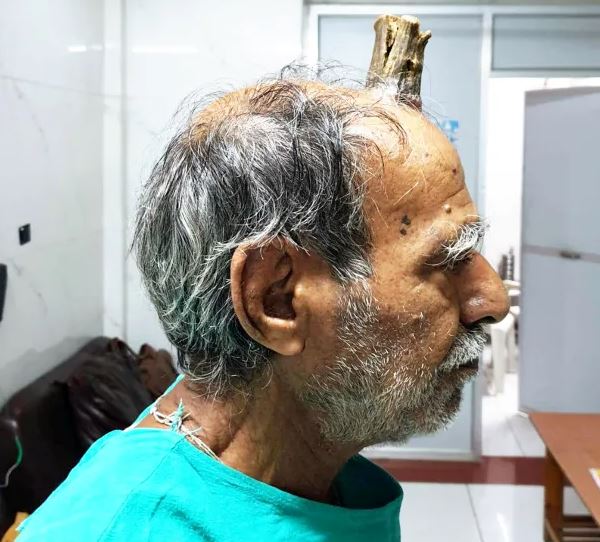
After suffering a head injury in 2014, he noticed a growth emerging from the top of his head. Initially, it didn't cause any discomfort, and he had it trimmed by his barber.
However, as the growth began to harden into a horn-like structure, Shyam decided to seek medical help.
Shyam decided to seek help from surgeons to remove a four-inch 'devil horn' that had grown on his head.
According to the doctor, the growth is a sebaceous horn, a rare condition where compacted keratin, the substance that makes up our hair, nails, and skin, protrudes from the skin.
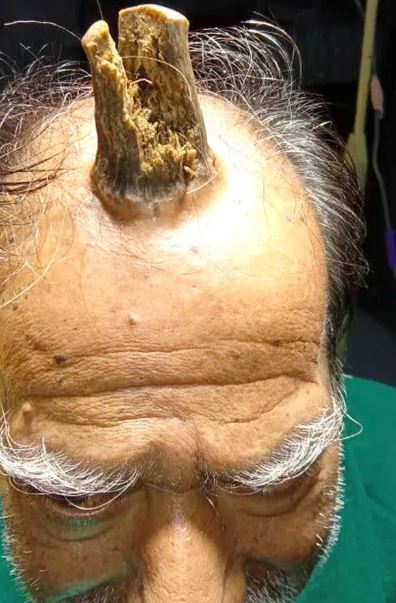
These growths can occur anywhere on the body but are more common in areas frequently exposed to sunlight, such as the head or shoulders.
Dr. Vishal Gajbhiye, a surgeon at Bhagyoday Tirth Hospital in Sagar, Madhya Pradesh, treated Shyam's condition.
He explained that the horn could be removed with a sterile razor since it is composed of keratin. However, the underlying condition still needed treatment.
He said: “In medical term, this type of rare growth is called sebaceous horn (devil’s horn).
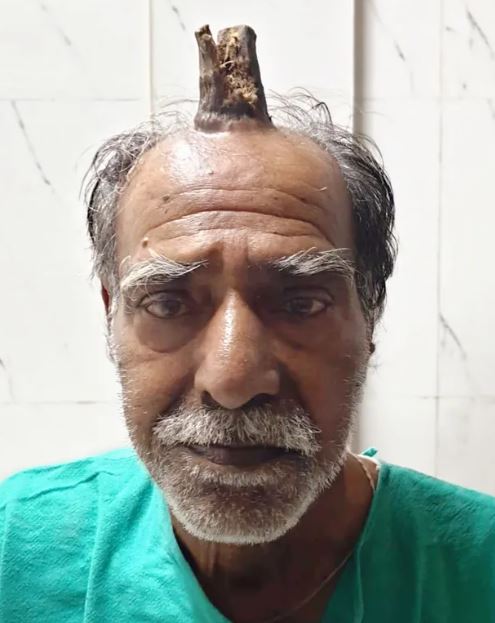
"As the horn is composed of keratin, the same material found in fingernails, the horn can usually be removed with a sterile razor.
Dr. Gajbhiye emphasized that while sebaceous horns are predominantly benign lesions, the possibility of malignant potential should always be considered.
Treatments can vary and may include surgery, radiation therapy, and chemotherapy. After its removal, the skin was grafted onto the wound, which has now healed completely.
He explanied: "Treatments vary, but they can include surgery, radiation therapy, and chemotherapy.
"Immediately after its removal, skin was grafted on the wound which has now healed completely."
Previously, Man with 'elephant man' growth on his nose.
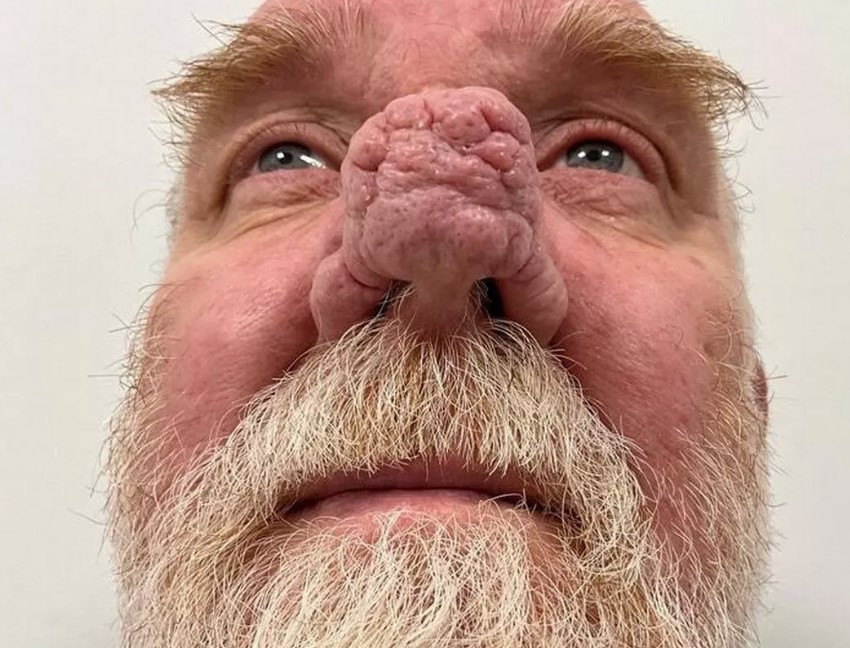
In another remarkable case, Ian Arthur, a 64-year-old Navy veteran, battled self-consciousness and isolation due to an unusual growth on his nose.
The large tumor, reminiscent of the disfigurement described in the movie "The Elephant Man," began appearing 10 years ago.
Arthur, who was diagnosed with rosacea, a condition that causes the skin to become red and sensitive, named the growth John, after John Merrick from the 1980 movie.
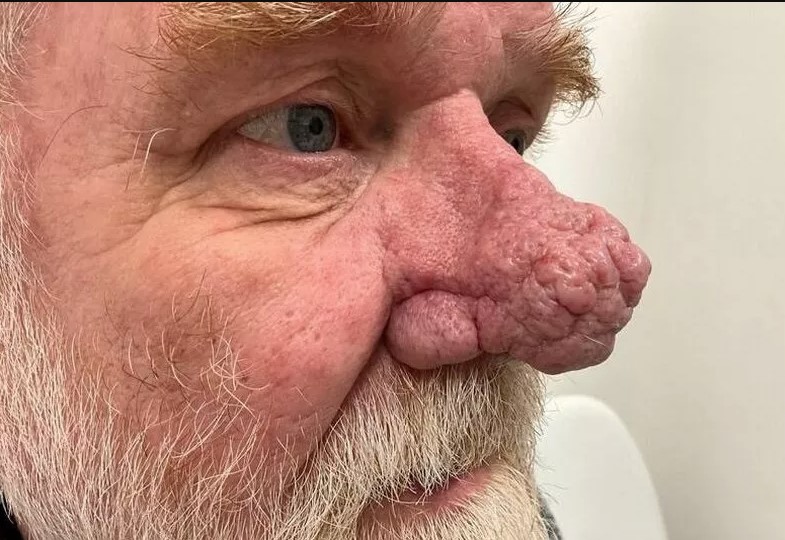
To avoid attention, he would only ride a motorbike and use a motorcycle helmet to cover his face.
He also started shopping late at night to avoid people noticing his 'ugly nose.'
Arthur underwent a 2-hour surgery to remove the tumor on his nose.
Dr. Cormac Convery, at Glasgow's Ever Clinic, performed a CO2 laser treatment to remove excess skin tissue on his nose.
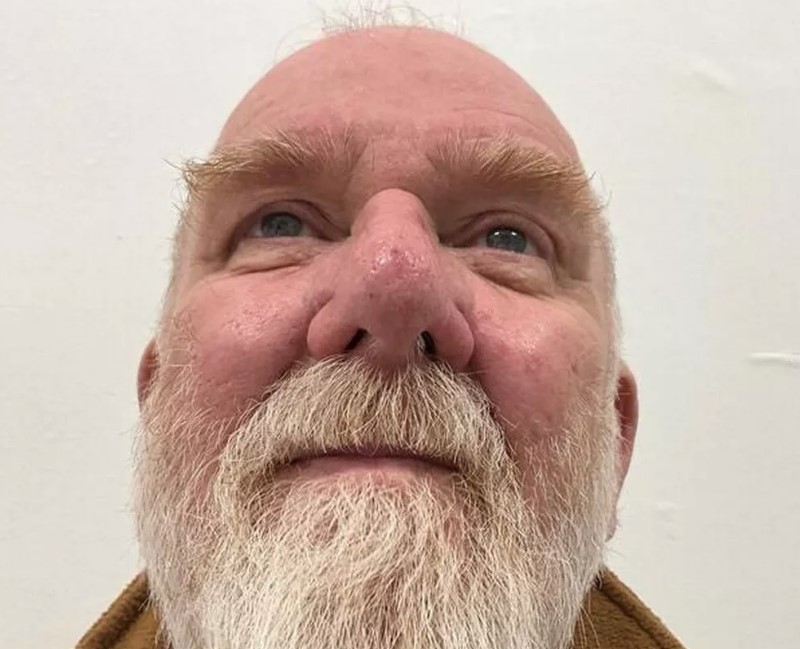
The pulsed mode laser was used to restore the nose to its original shape. The successful treatment, which Arthur described as reasonably priced, completely changed his life.




